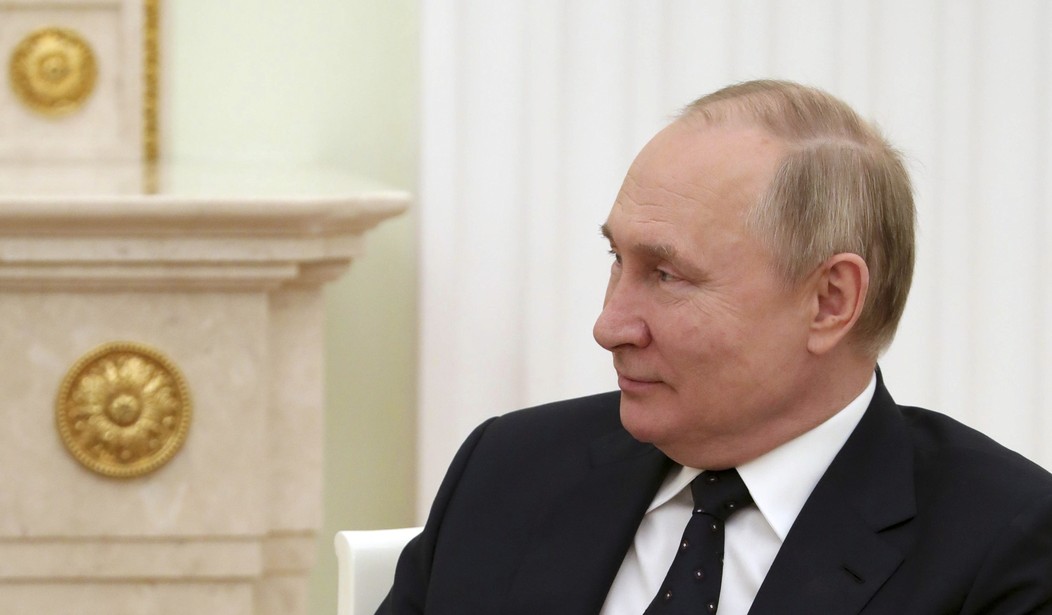Very few parts of Russian society have drawn more interest than the so-called “oligarchs.” These are incredibly wealthy men with political connections to Putin’s inner circle because, in the totalitarian kleptocracy that is Russia under Vladimir Putin, if you don’t have political ties to Putin’s inner circle, wealth doesn’t bring you power; it brings you a one-way trip to a Siberian labor camp.
The first generation of Russian oligarchs emerged from the 1991 collapse of the Soviet Union, whose state control over the economy began to loosen under Mikhail Gorbachev’s perestroika, or restructuring reforms.
Gorbachev’s successor as president, Boris Yeltsin, then ramped up privatization, seeking to transform Russia with its trove of state assets into a free-market economy — and fast. Yeltsin and the other architects of post-Soviet Russia rapidly loosened state control over prices and property, according to David Hoffman, author of “The Oligarchs” and a contributing editor at The Washington Post.
The government sold swaths of state-owned enterprise — from small restaurants to oil giants — in both rigged auctions and through privatization vouchers. A scramble for the spoils ensued.
This group has largely passed from the scene. Behind them comes a new class of oligarchs who owe everything to Vladimir Putin.
But after Putin became president in 2000, the era of the old guard largely came to an end. Russia’s new leader did not embrace the spirit of perestroika or approve of the rise of new capitalist tycoons.
[Putin] moved to rein in the Russian financiers’ power and consolidate his own. Along the way, he ended up creating his own class of influential elite — the new oligarchs.
In contrast with the older generation, this new class has been more rooted in Russia and less interested in ingratiating themselves with the West, said Timothy Frye, a professor of post-Soviet foreign policy at Columbia University.
They generally fall into three categories, according to Frye.
First, there are those with long-standing ties to Putin. These individuals have built companies largely on immense state contracts that were both profitable and assigned on a noncompetitive basis. In 2018, for example, Putin opened a $4 billion bridge connecting Russia with Crimea. It was built by a billionaire businessman and construction magnate, Arkady Rotenberg, who also happens to be Putin’s childhood friend and former judo sparring partner.
Second are the business executives who “cut their teeth in Russia in the Putin era,” said Frye, and were appointed by the president to run major state companies. This group includes someone like Igor Sechin, a close ally of Putin who was named chairman of Rosneft, the Russian state oil company. France this month seized Sechin’s 281-foot yacht the Amore Vero (or “true love” in Italian). The United States, Britain and the E.U. have all targeted Sechin for sanctions in recent weeks.
Third, there are the national security hawks — elite security and military hard-liners, some of whose relationships with Putin date back to his years as a K.G.B. agent. While not traditional oligarchs, some of them have leveraged their connections in the security services and “cashed them in,” Frye said.
Some of these have featured prominently in American politics. For example, Oleg Deripaska was a central figure in the Russia Hoax as well as being an FBI informant (see There Might Be A Very Good Reason Why Mueller Is Not Indicting Paul Manafort’s Russian Business Partner). Another oligarch, Yevgeny Prigozhin, owned Concord Management and Consulting and beat Robert Mueller’s flunkies like a rented mule in one of the Russia Hoax trials (see Mueller’s Team Continues Their Humiliation at the Hands of a Russian Oligarch).
Prigozhi also is the principal of the Wagner Group, the nebulous corporation that employs mercenaries to places where Putin would rather not send Russian troops to do things he’d rather Russian troops not be caught doing, you know, like torture and low-level genocide.
But being a politically connected billionaire is not all superyachts and scantily clad “models.” It is damned stressful, if not downright dangerous. Since January, at least six Russian oligarchs have committed suicide.
List of Russian oligarchs who have been found dead in mysterious circumstance since Jan, per Newsweek
✔️ Sergey Protosenya
✔️ Vladislav Avaev
✔️ Vasily Melnikov
✔️ Mikhail Watford
✔️ Alexander Tyulyakov
✔️ Leonid Shulmanhttps://t.co/amSoDp4xJM#StandWithUkraine️— Alex Raufoglu (@ralakbar) April 22, 2022
Via Newsweek, here’s a list of the deceased.
Sergey Protosenya
The body of Sergey Protosenya, former top manager of Russia’s energy giant Novatek, was found together with those of his wife and daughter on Tuesday in a rented villa in Spain, where the family was reportedly on holiday for Easter.
The 55-year-old millionaire was found hanged in the garden of the villa in Lloret de Mar by Catalonian police, Spanish media reported, while his wife and daughter were found in their beds with stab wounds on their bodies.
…
Police are investigating two possible scenarios, say Telecinco: either the Russian oligarch killed his wife and daughter and then hanged himself, or that the entire family was murdered and the crime scene was later stage to appear like a murder-suicide.
Vladislav Avaev
Just a day before the body of Protosenya was found in Spain, on April 18, former vice-president of Gazprombank Vladislav Avaev was found dead in his multi-million apartment on Universitetsky Prospekt in Moscow, together with his wife and daughter.
The bodies were reportedly discovered by a relative of the Avaevs after being unable to get in contact with the family for several days.
The apartment was locked from the inside and a pistol was found in Avaev’s hands, leading investigators to explore the theory that Avaev shot his wife and his 13-year-old daughter before killing himself.
Vasily Melnikov
On March 24, Russian newspaper Kommersant reported the death of billionaire Vasily Melnikov in his luxury apartment in Nizhny Novgorod, the sixth-largest city in the country.
According to police investigations mentioned by Kommersant, Melnikov—who reportedly worked for the medical firm MedStom—was found dead in the apartment together with his wife Galina and two sons. They had all died from stab wounds and the knives used for the murders were found at the crime scene.
Kommersant reported that investigators concluded that Melnikov killed his 41-year-old wife and 10-year-old and 4-year-old children before killing himself, but neighbors and relatives struggle to believe this theory. According to the Ukrainian media outlet Glavred, Melnikov’s company was suffering huge losses because of Western sanctions.
Mikhail Watford
Ukrainian-born Russian tycoon Mikhail Watford was found dead in his home in Surrey in the U.K. on February 28.
Watford—who had changed his name from the original Tolstosheya—was born in 1955 in then-Soviet Ukraine and had made a name for himself after becoming an oil and gas magnate.
Watford, 66, was found hanged in the garage of his home by a gardener, according to The Daily Mail. Surrey police said the circumstances around his death were not suspicious, as reported by the BBC.
Alexander Tyulyakov
On February 25, Gazprom’s Deputy General Director of the Unified Settlement Center (UCC) for Corporate Security, Alexander Tyulyakov, was found dead in a cottage near St. Petersburg, as reported by the Russian newspaper Gazeta.
Tyulyakov’s body was reportedly found hanged in the apartment’s garage. Police found a note next to his body that led investigators to believe the oligarch had died by suicide.
Leonid Shulman
The first death linked to Russian energy giant Gazprom dates back to before the Russian invasion of Ukraine had even started, in January.
At that time, 60-year-old Gazprom’s top manager Leonid Shulman was found dead in the bathroom of a cottage in the Leningrad region, next to a note that led police to believe he died by suicide, according to Gazeta and Russian media group RBC.
Of course, this could all be a coincidence. In fact, Schulman could be an outlier because he was on sick leave when he killed himself. The other five seem to be related to the invasion of Ukraine. Or maybe, billionaire psychopaths are prone to killing their families before committing suicide.
When you combine this with stories of a purge within the Russian domestic security service (150 FSB Foreign Intelligence Agents and Putin’s Domestic Policy Advisor Purged for Ukraine Fiasco), the head of Putin’s personal paramilitary force being placed under arrest (Top General in Putin’s Personal Army Is Arrested by FSB), the firing of eight senior generals, and a fresh purge underway in the Ukraine theater, one is not left with the view of a healthy government.
[2] First, the Kremlin dismissed the Black Sea fleet commander, General Osipov. He's under arrest. pic.twitter.com/RM6XtqVD1y
— Victor Kovalenko (@MrKovalenko) April 22, 2022
[4] Also, the Russian MoD dismissed Gen. Lt. Sergei Kisel from the post of a commander of the 1st Russian tank Army for a failure to capture the Chernihiv & Sumy provinces, non-functional tanks, poorly prepared troops, using conscripts in the war against the law, etc. pic.twitter.com/I9t8ikrSq6
— Victor Kovalenko (@MrKovalenko) April 22, 2022
[5] The Rus. MoD dismissed Lt. Gen. Arkadiy Marzoev as a commander of the 22nd Army Corps (Crimea). He’s a son of a Soviet Col. Vasily Marzoev who in #WWII fought the Nazis at Moscow, Stalingrad, Kharkiv. He died in 2004 & didn’t see how his son disgraced the father’s glory. pic.twitter.com/NOAC9vcgPX
— Victor Kovalenko (@MrKovalenko) April 22, 2022
I think it is ridiculous to presume Putin is not feeling the pressure. Ukraine has more tanks in the area of operation than does Russia. It is reaching parity in artillery with Russia and definitely overmatches Russia in the quality of artillery on hand. In a recent television appearance, Putin did not appear the shrewd, in control, and bombastic autocrat that we’ve seen in the past.
Putin says he doesn’t want the factory stormed. It will be inexpedient to get bogged down inside. Lock it down so that not even a fly can escape, he tells Shoigu. pic.twitter.com/fACOrS9JJE
— Kevin Rothrock (@KevinRothrock) April 21, 2022
Either we are witnessing a cascade of unlikely events within a 60-day timeframe, or the institutions upon which Putin depends to stay in power–the security services, the military, and the oligarchs–are shaken by Putin’s War in Ukraine. The actions he is taking will either stiffen the resolve of those institutions…or it won’t.














Join the conversation as a VIP Member